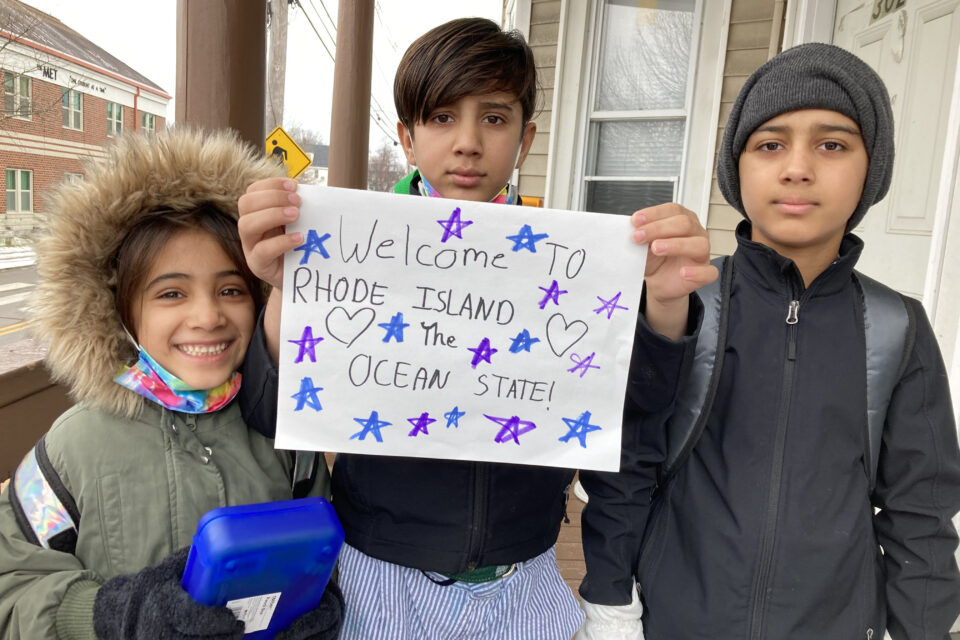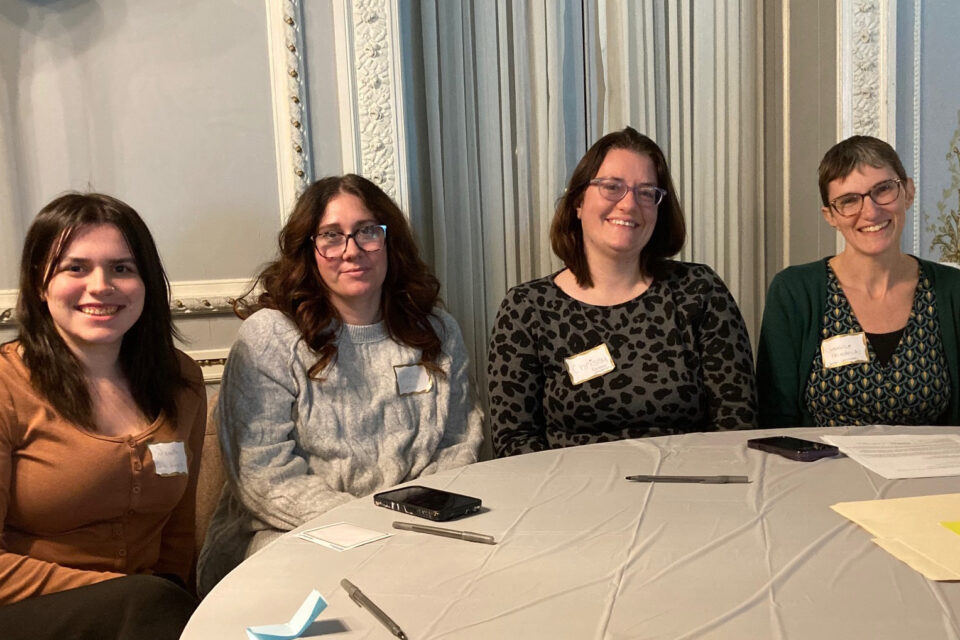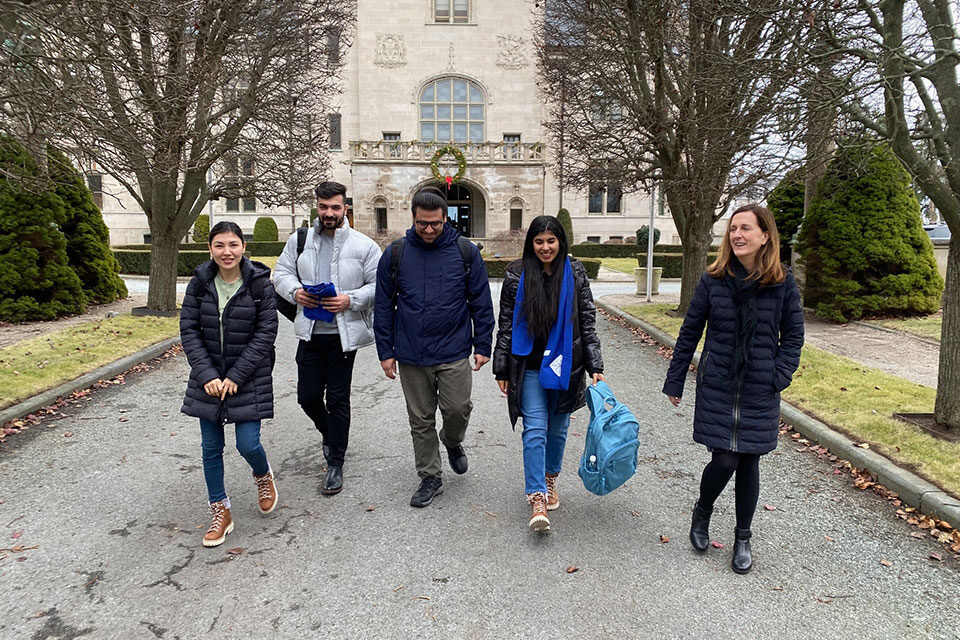Salve Regina supporting refugee resettlement in Rhode Island and beyond

In keeping with Salve Regina’s commitment to living out its mission in tangible ways, the University is extending its focus on supporting refugee resettlement. In spring 2024, in partnership with Dorcas International Institute of Rhode Island, Salve Regina received an Innovation Incentive Grant from SHERR, designed to stimulate ideas in refugee resettlement. It was one of only eight projects selected from 43 submitted by institutions across the nation.
The project, “Building Case Management Capacity in Rhode Island and Beyond,” will result in new curriculum development in the Department of Social Work, with the longer-term goal of increasing the state’s capacity to receive and support refugees. The proposal was created by Erin FitzGerald, director of the Center for Global Education and Fellowships, and Dr. Mary Montminy-Danna, professor and chair of the Department of Social Work.
Part of the project focuses on extending knowledge-building through a collaboration with Gwynedd Mercy University, Carlow University and Misericordia University.
“Together we aim to build and strengthen relationships with our local resettlement agencies, growing refugee resettlement capacity in our communities and state,” Montminy-Danna said. “By focusing on the mercy critical concerns, we’re all working toward a world that is more harmonious, just and merciful.”
Fall workshop brings experts and students together
In November, the innovation project culminated in a two-day forum at Salve Regina where educators and students from all four universities and Dorcas International gathered. Sessions provided an overview of the global refugee resettlement system, the various immigration statuses in the U.S. and resources available. Participants also explored areas of refugee resettlement that fall outside of typical social work, including stages of trauma, cultural awareness, student integration and strategies for advocacy.
The main presenter was Sagitta Woodman ’12, a private practitioner and consultant on mental health services with newly arrived populations. Woodman specializes in refugee resettlement, provides trauma informed care, has worked with the UN and convened a task force with state agencies to open access to behavioral health services for refugees, unaccompanied minors and other immigrant populations.
The SHERR grant enabled students like Chrissy Davis, a graduate student at Carlow University, to travel to the workshop. “I work in the high-risk obstetrics unit at a hospital, where I see a lot of refugee patients,” Davis said. “I had no idea there were so many different statuses. I’m taking back a lot of knowledge that will help me understand my patients and help them even more.”
Alina Gray, an undergraduate student at Carlow and Rhode Islander working in a local substance abuse program, agreed. “The opportunity to get so much in-depth information and learn about the available resources will help a lot in my work,” Gray said.
Baha Sadr, state refugee coordinator and chief of program development and community partnerships for the Rhode Island Department of Human Services; and Adderlin Baily, refugee health program manager and Rhode Island state refugee health coordinator of the Rhode Island Department of Health, both attended the conference. Baily’s participation includes working with Salve Regina to open public health internships in her department to interested students.

Students and faculty from Carlow University joined the refugee resettlement workshop.
Going beyond the classroom
The workshop also included the voices of resettled individuals in a panel discussion, where they shared their journeys from Iraq, South Sudan, Afghanistan and Kenya to the U.S. The eye-opening discussion brought to light the challenges resettled students face, from going to school in camps to the constant and devastating uncertainty they face at each step along the way, to learning new languages and experiencing loneliness in being separated from family, friends and familiar food. They shared the deep impact of the support of agencies, new friends and counselors can make in their journey, coping mechanisms that they’ve found helpful and the desire of many of them to help other students faced with the challenge of resettling.
Mustafa Shaker, who came to the U.S. in 2007 from Iraq by way of Jordan and Syria, went to Rhode Island public schools, graduated from Rhode Island College and received his master’s degree from Northeastern University. He is now a case manager at Dorcas, recently opened a restaurant and got married. “I am able to tell families that I came through that same journey 18 years ago,” he said. “I have been in their shoes.”
Another panelist noted, “My hope is that I can make a positive impact in a community. It doesn’t have to be big. I want to help others and be useful. That’s the place I want to get to.”

Salve Regina has been working to create higher education pathways for refugee students since the first cohort arrived on campus in 2023.

